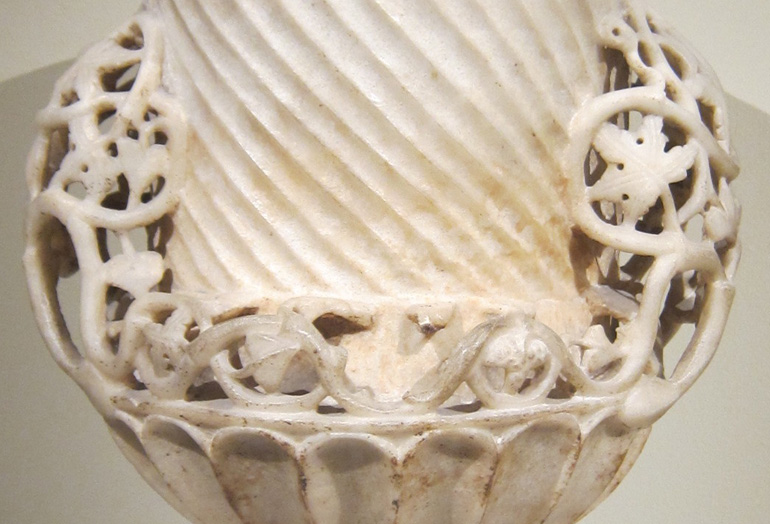Gotham Diary:
Apophatic
16 September 2013
I shall not pretend to sound the depths of Diarmaid MacCulloch’s new book, Silence: A Christian History. I read it for two reasons. First, MacCulloch is a brilliant historian working in a field that, until recently, had no real history, that of Christianity. (We were expected to accept the Roman church’s just-so stories.) He writes wonderfully well and he puts things together. Silence also happens to be relatively brief. It is brief by any measure, at 240 pages, but it is especially brief when compared with MacCulloch’s magisterial histories of the Protestant Reformation and of Christianity and its Hebrew antecedents. No book can be altogether silent, without also being pointless, but Silence is a remarkable exercise in discretion.
My second reason was idle curiosity: his earlier books made me wonder what it is that MacCulloch believes. Believes in, in the way of creeds. I overlooked the possibility that, on this particular point, the title might be particularly meaningful. It is, of course, none of our business, what MacCulloch’s credo happens to be. He is happy to tell us right off, however, that a lot of his thinking about silence has been shaped by the fact that “from an early age, I was conscious of being gay.” I wasn’t expecting to read that. This revelation worked, surprisingly, to intensify my sense of MacCulloch’s respect for his subject.
The structure of the book reminds me of Brahms’s Fourth Symphony. The arrangement of the first three parts, on silence in Scripture, in monastic life, and in the three reformations that MacCulloch finds in Christian history (iconoclasm, clerical centralism, and then the Protestant one), is slightly unusual, but nothing about them prepares you for the finale, which is a consideration of surreptitious silence — the silence of simulation. Sometimes, such silence is not only prudent but enriching: it is the silence of the conversos in Inquisitorial Spain. (MacCulloch’s subchapter on English Nicodemism under Elizabeth I is searingly intelligent, explaining most of the theological and institutional murk that was carefully propagated by that monarch in order to prevent a reprise of the violence that characterized preceding reigns — and that erupted after her demise. “Nicodemism” is one of Calvin’s coinages; it refers to an apostle who visited Jesus only at night.) Sometimes, silence is a disgrace, and in discussing three examples of shameful Christian silence — on sexual predation (he explores a forgotten but lamentably typical scandal from the Seventeenth Century), on the Holocaust, and on slavery — MacCulloch might be thought to be writing a kind of church history rather different from that in his earlier sections. But this is not the case, because the apophatic silence of negative theology, which holds that God is beyond human description, cannot be fully appreciated without taking the measure of the more interested, more human silence of cowardly non-witness.
Humble silence has two saliences. One is existential, and concerns the struggle of meaning against noise. The other is a function of authority. Historically, powerful men (and women) have been easily disposed to silence views alternative to their own. When this silencing is brought to bear on matters of faith, the virtuousness of obedience comes into question. Both aspects are brought together in the response of silence to assertions of orthodoxy — a response that may not be as passive as authorities might like to think. MacCulloch presses silence not for theories or principles but for implicit wisdom. I’m hardly surprised that the bit of wisdom that most quickly pierced my hide had to do with music.
Anglicans have good reason to point complacently to their development and protection of Choral Evensong, in cathedrals after the Reformation. Thomas Cramner’s Prayer Book service, put to musical uses of which he would undoubtedly have disapproved, has become one of the principal present-day vehicles of devotion for many who cannot accept forms of words which contain the orthodox propositions of Christianity; such attenders may still discover and explore their Christian identity through music, and in fact they have been attending the Anglican cathedrals and greater churches of England in ever larger numbers through the first decade of this century.
Silence is a book to keep close to hand.

